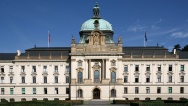Press Advisories
27. 3. 2009 8:45
Global Economic Forum G-20 will be held on the 2nd April in London
What is the G-20
The Group of Twenty (G-20) Finance Ministers and Central Bank Governors was established in 1999 to bring together systemically important industrialized and developing economies to discuss key issues in the global economy. The inaugural meeting of the G-20 took place in Berlin, on December 1516, 1999, hosted by German and Canadian finance ministers.
Mandate
The G-20 is an informal forum that promotes open and constructive discussion between industrial and emerging-market countries on key issues related to global economic stability. By contributing to the strengthening of the international financial architecture and providing opportunities for dialogue on national policies, international co-operation, and international financial institutions, the G-20 helps to support growth and development across the globe.
Origins
The G-20 was created as a response both to the financial crises of the late 1990s and to a growing recognition that key emerging-market countries were not adequately included in the core of global economic discussion and governance. Prior to the G-20 creation, similar groupings to promote dialogue and analysis had been established at the initiative of the G-7. The G-22 met at Washington D.C. in April and October 1998. Its aim was to involve non-G-7 countries in the resolution of global aspects of the financial crisis then affecting emerging-market countries. Two subsequent meetings comprising a larger group of participants (G-33) held in March and April 1999 discussed reforms of the global economy and the international financial system. The proposals made by the G-22 and the G-33 to reduce the world economy's susceptibility to crises showed the potential benefits of a regular international consultative forum embracing the emerging-market countries. Such a regular dialogue with a constant set of partners was institutionalized by the creation of the G-20 in 1999.
Membership
The G-20 is made up of the finance ministers and central bank governors of 19 countries: Argentina, Australia, Brazil, Canada, China, France, Germany, India, Indonesia, Italy, Japan, Mexico, Russia, Saudi Arabia, South Africa, South Korea, Turkey, the United Kingdom and the United States of America, and also the European Union who is represented by the rotating Council presidency and the European Central Bank. To ensure global economic fora and institutions work together, the Managing Director of the International Monetary Fund (IMF) and the President of the World Bank, plus the chairs of the International Monetary and Financial Committee and Development Committee of the IMF and World Bank, also participate in G-20 meetings on an ex-officio basis. The G-20 thus brings together important industrial and emerging-market countries from all regions of the world. Together, member countries represent around 90 per cent of global gross national product, 80 per cent of world trade (including EU intra-trade) as well as two-thirds of the world's population. The G-20's economic weight and broad membership gives it a high degree of legitimacy and influence over the management of the global economy and financial system.
Chair
Unlike international institutions such as the Organization for Economic Co-operation and Development (OECD), IMF or World Bank, the G-20 (like the G-7) has no permanent staff of its own. The G-20 chair rotates between members, and is selected from a different regional grouping of countries each year. In 2009 the G-20 chair is the United Kingdom, and in 2010 it will be South Korea. The chair is part of a revolving three-member management Troika of past, present and future chairs. The incumbent chair establishes a temporary secretariat for the duration of its term, which coordinates the group's work and organizes its meetings. The role of the Troika is to ensure continuity in the G-20's work and management across host years.
Meetings and activities
It is normal practice for the G-20 finance ministers and central bank governors to meet once a year. The last meeting of ministers and governors was held in S?o Paulo, Brazil on 8-9 November 2008. The ministers' and governors' meeting is usually preceded by two deputies' meetings and extensive technical work. This technical work takes the form of workshops, reports and case studies on specific subjects, that aim to provide ministers and governors with contemporary analysis and insights, to better inform their consideration of policy challenges and options.






